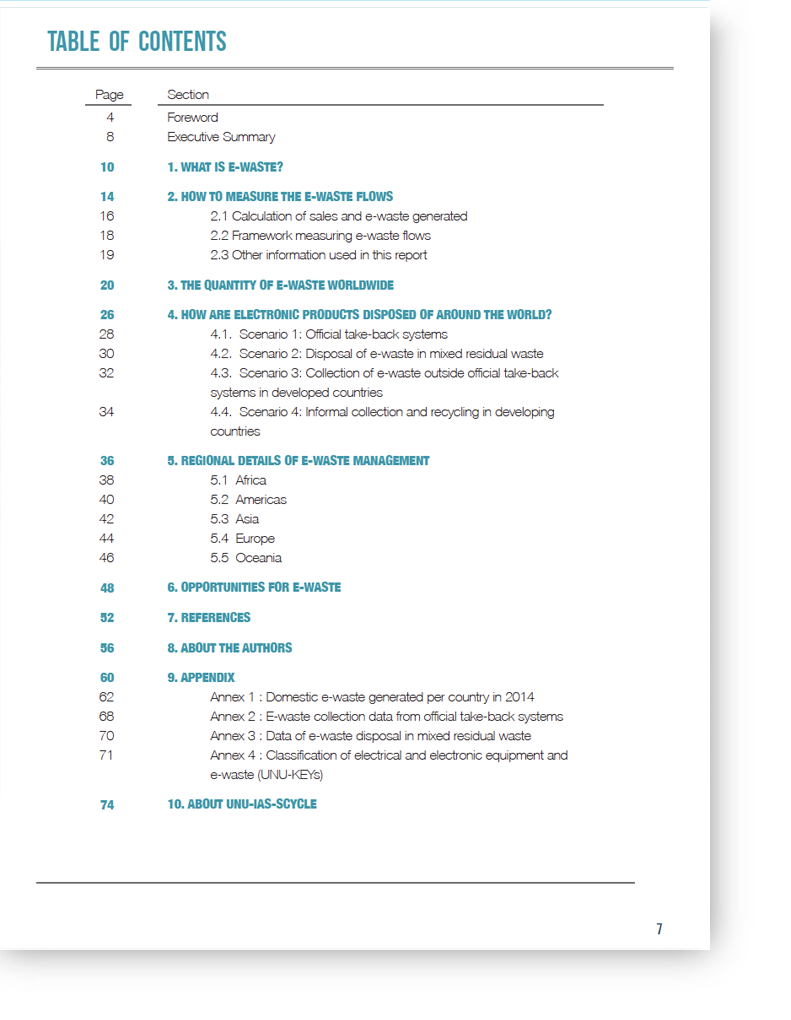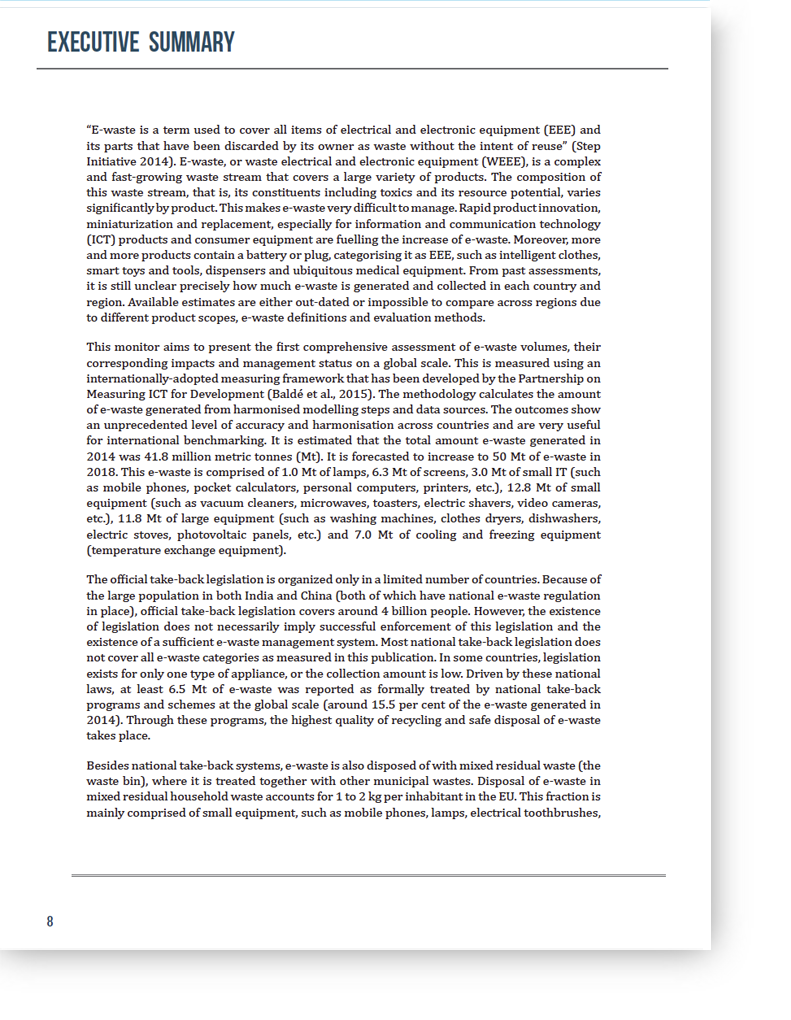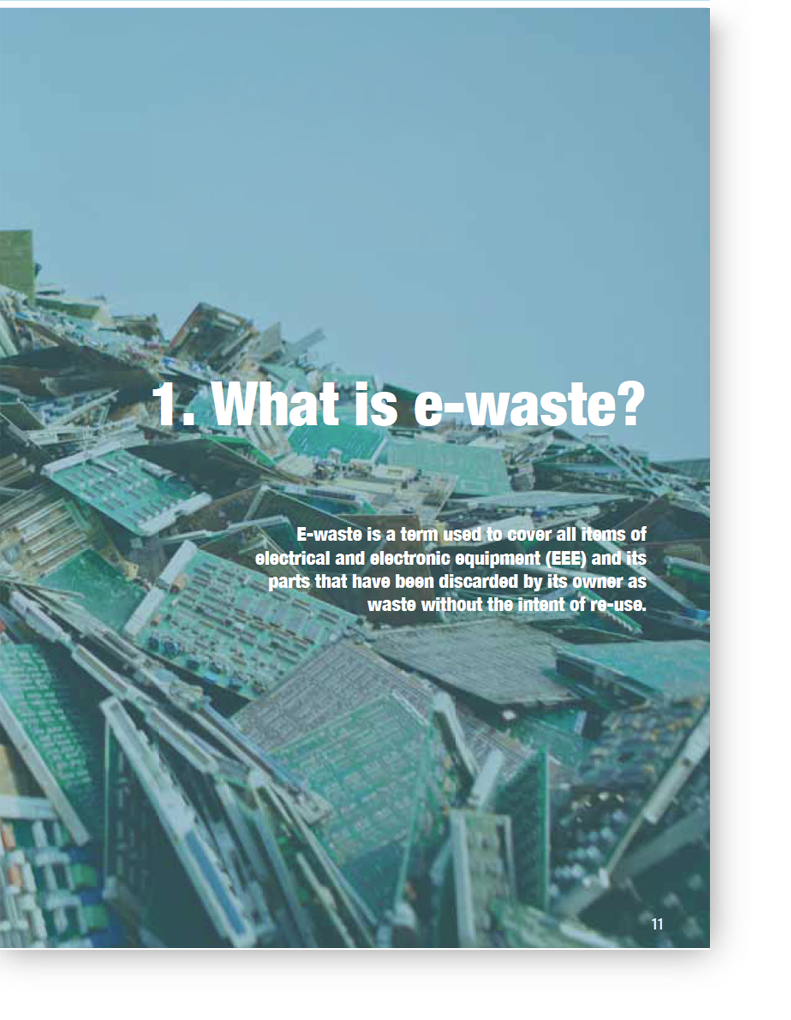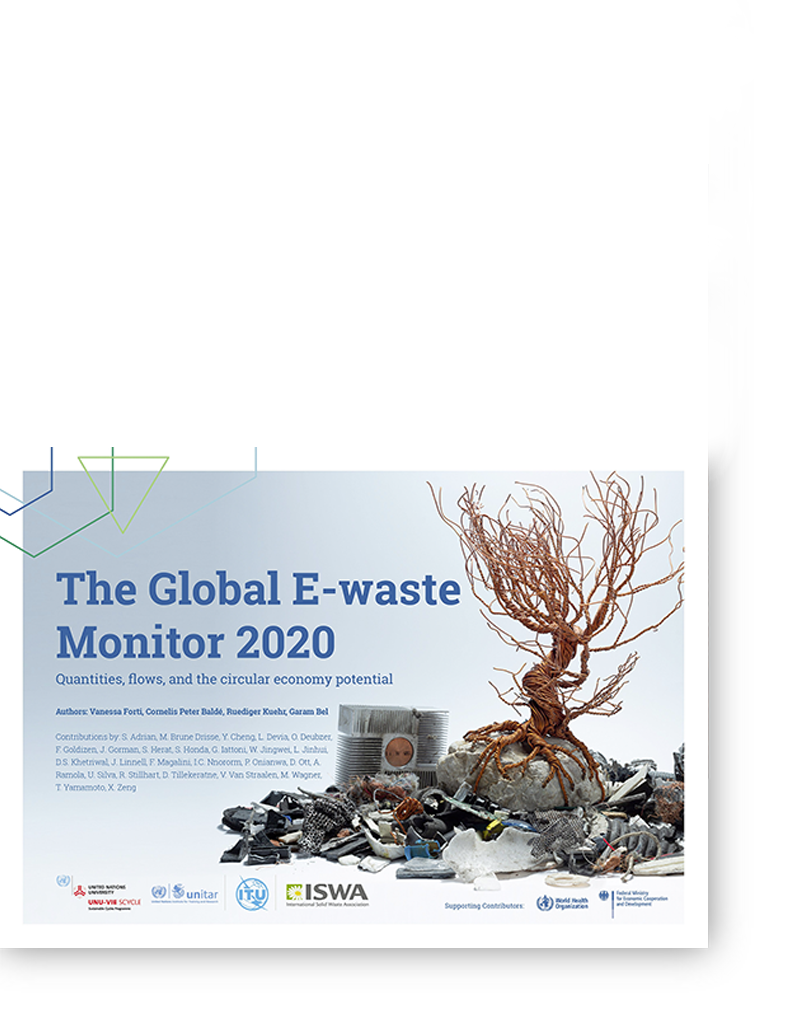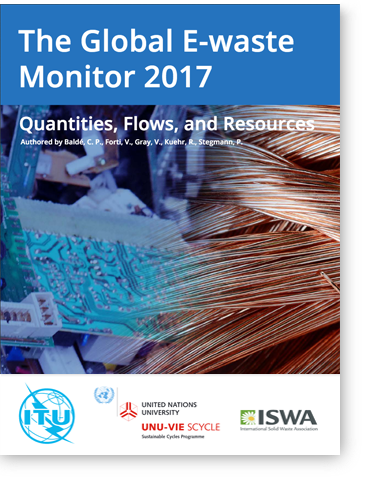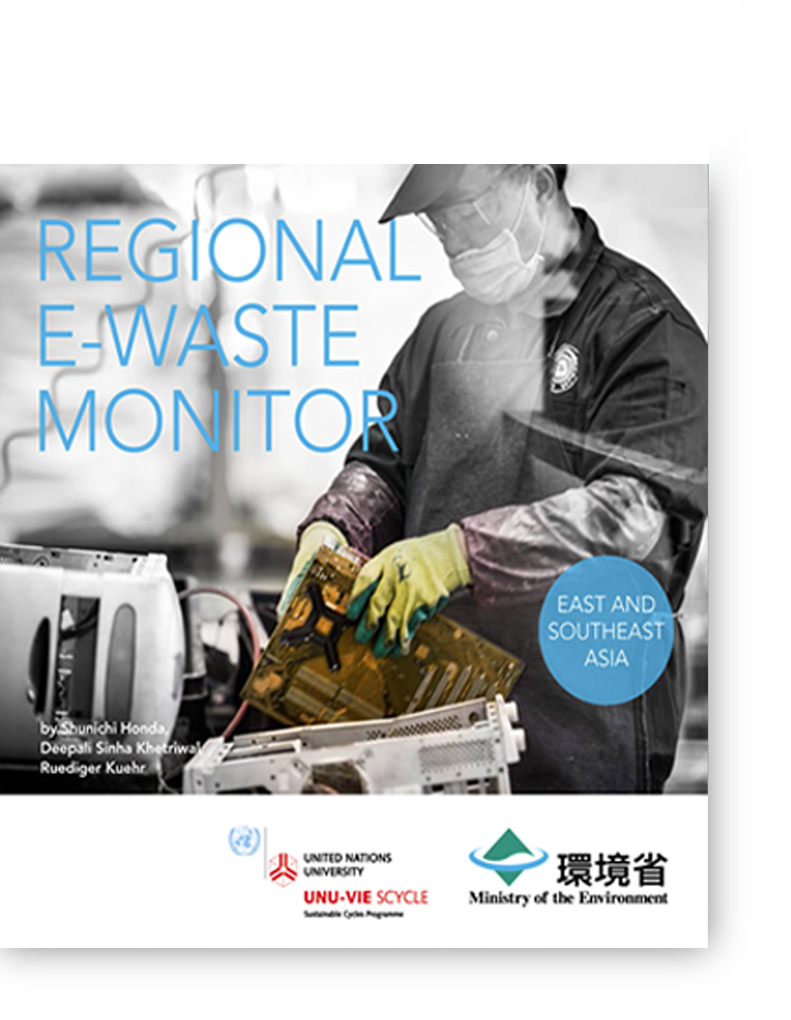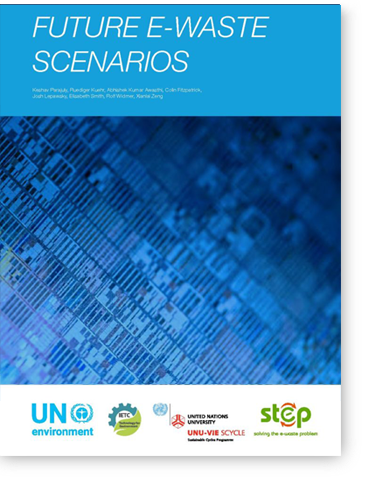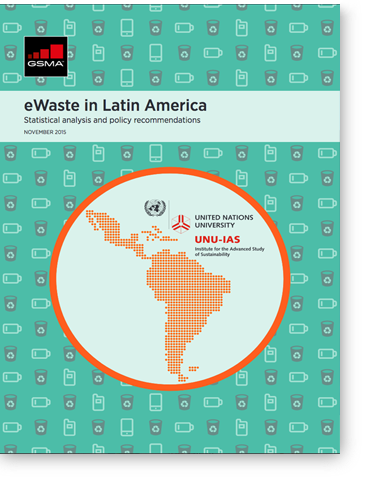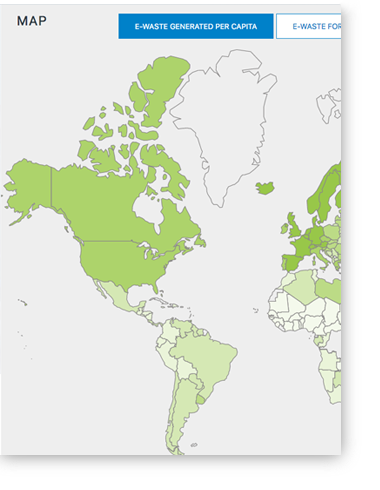The Global E-waste Monitor 2014 – Quantities, flows and resources
This report uniquely presents a summary of the regional e-waste statuses, and it is arranged so as to allow direct comparisons where possible that can help further the development of e-waste management systems based on other countries experiences.
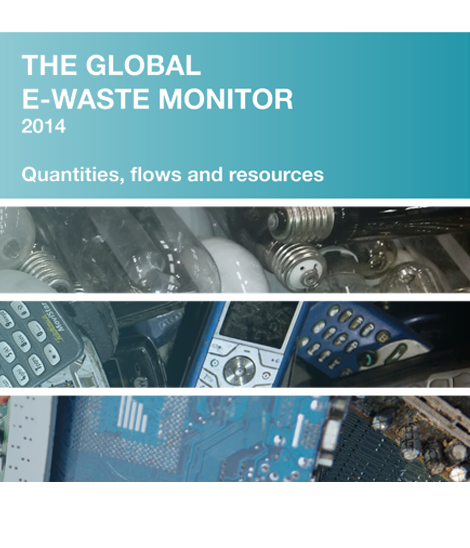
Book Preview
About the authors

Dr. Cornelis Peter Baldé (Kees)
Dr. Cornelis Peter BALDÉ (Kees) is a Senior Programme Officer at the Sustainable Cycles Programme at the United Nations University. At the UNU, Kees’s main tasks are to lead the statistical work, build institutional capacity on waste statistics in various countries, and waste policies, provide policy advice on e-waste to countries, and supervise staff and the strategic development of the team. He is one of the founders of the Global E-waste Statistics Partnership. Kees is currently the co-chair of the Taskforce on Waste Statistics of the UNECE Conference of European Statisticians that is tasked with developing a framework for waste statistics that is sufficient for monitoring current and future circular economy policies as well as waste policies. Additionally, Kees has been selected by the Dutch government as a member of the board of directors of the Dutch Waste Electronical and Electronic Appliances Register, a role he has held since 2015. In 2018, the Global E-waste Monitor 2017 won the European Advanced SDG award from the Diplomatic Academy in Vienna. At Statistics Netherlands, Kees received the Innovation Award for the Dutch Green Growth publication in 2012. Previously, Kees worked at Statistics Netherlands as the deputy head of the Environment Statistics team. He earned his PhD on hydrogen storage at the Faculty of Chemistry at Utrecht University.
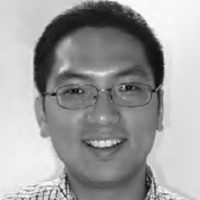
Feng Wang
Feng WANG joined UNU in 2009 to work on a variety of waste-related research projects, capacity building activities and international cooperation. Feng led the “Best of the 2 Worlds” project, which aimed to develop eco-efficient treatment infrastructure for e-waste in developing countries. He has also involved in a series of country studies on mapping e-waste flows (the Netherlands, Italy, Belgium and China). His recent work involves research projects to provide policy suggestions to the European Commission on the Recast of WEEE Directive, as well as quantifying the global e-waste generation. Feng Wang holds a PhD in e-waste management from Delft University of Technology.
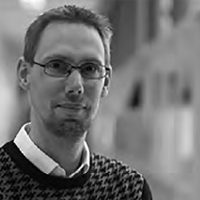
Jaco Huisman
Jaco HUISMAN is Scientific Advisor to the United Nations University and leads the IAS SCYCLE Electronics Recycling Group. He steers various international projects to quantify the e-waste amounts and problems worldwide in cooperation with key research institutes and universities. In the past, he has served as the lead author of the UNU study supporting the European Commission’s 2008 Review of the EU WEEE Directive and the advanced e-waste country study for various European countries. He is also the scientific coordinator of the FP7 project CWIT: “Countering WEEE Illegal Trade” and the H2020 project ProSUM: Prospecting Secondary raw materials in the Urban Mine. He holds a PhD from Delft University of Technology on ecoefficiency of take-back and recycling systems for electronics. Besides his UNU responsibilities, he is an associate professor at Delft University of Technology.
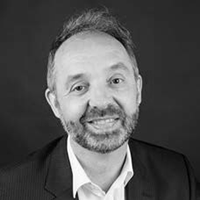
Dr. Ruediger Kuehr
Dr. Ruediger KUEHR is Director of the UNU Vice Rectorate in Europe, Sustainable Cycles Programme (SCYCLE), focusing its work and activities on sustainable production, consumption, and disposal. Ruediger co-founded the Solving the E-waste Problem (StEP) Initiative and functioned as its Executive Secretary from 2007-2017. From 1999-2009, he served as Head of the UNU Zero Emissions Forum (ZEF) – European Focal Point, and from 2000-2002 he was Secretary to the Alliance for Global Eco-Structuring (AGES) under UNEP’s Cleaner Production Network. Ruediger has co-authored and co-edited several books, studies, and proceedings, including the previous Global E-waste Monitors in 2014 and 2017. He also publishes and lectures on, inter alia, environmental technology transfer, transnational environmental policies, strategic sustainable development, and development cooperation. Ruediger has also been the Project Manager of the “2008 Review of Directive 2002/96/EC on waste electrical and electronic equipment (WEEE)” (2007). A political and social scientist by education with a PhD (Dr. rer. pol.) from the University of Osnabrück (Germany) and an MA from the University of Münster (Germany), as well as additional post-graduate studies in Tokyo, (Japan), he has served as Senior R&D Specialist with The Natural Step in Sweden and as a freelance policy-consultant to various national governments.
